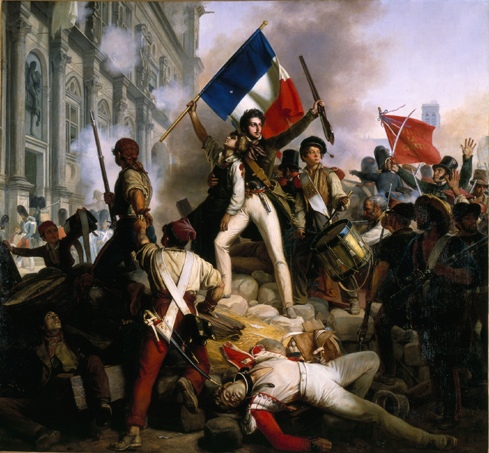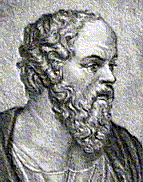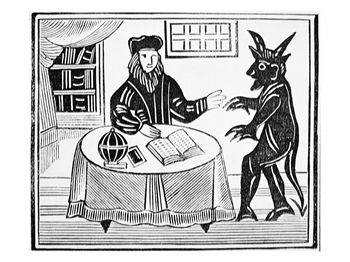 When looking back upon everything studied this unit, every piece seems to fit together flawlessly, however, it is another task to take it into one’s own hands and try to explain this in an essay. The quote given at the end of chapter twenty-nine in the Wealth and Poverty of Nations (by David Landes), “cultivate a skeptical faith, avoid dogma, listen and watch well, try to clarify and define ends, the better to chose means”, means simply this: Be skeptical, avoid a clear set of rules of what is right and what is wrong, and use this to try to find the truth, because this is wherein the real wealth lies.
When looking back upon everything studied this unit, every piece seems to fit together flawlessly, however, it is another task to take it into one’s own hands and try to explain this in an essay. The quote given at the end of chapter twenty-nine in the Wealth and Poverty of Nations (by David Landes), “cultivate a skeptical faith, avoid dogma, listen and watch well, try to clarify and define ends, the better to chose means”, means simply this: Be skeptical, avoid a clear set of rules of what is right and what is wrong, and use this to try to find the truth, because this is wherein the real wealth lies.
When observing the flattening world around us, the world such as Thomas Friedman explained it to be in his book the World is Flat, truth and honesty is a very important virtue. For one, our society is highly based on a system called the cash nexus, an ideology where people only communicate for one reason: money. Their dealings are simply business based; they would never have met unless on business or money occasions. In this situation, trust and virtuosity are important traits. One must trust the person he or she is dealing with, or they will simply not make a deal at all. As well as this, humans have been searching for the truth since the beginning of time; even more so since the dawn of the humanist era. The basis of thought of humanists is belief that inquiry is more important than rules, that humans should view themselves as individuals, not just as one statistic amongst thousands following the same rules, just as blindly as everyone else. This caused them to yearn to find out more about themselves, thus, the search for truth. Humans today are mostly humanists. We are individualists; our Flat World proves this. A poor person born in a country other than a superpower can still input his or her ideas into the World, still be a part of the workforce, even if they are not physically there. One person is able to make a large difference, with or without money. That is the power of the Flat World, that is the power of individualism, and that is the power for the search for truth in oneself. (1, Medici Money)
The search for truth has passed along all through the ages, from the great philosopher Socrates, to the astronomers of the Renaissance, to the humanists, to the revolutionaries in the French revolution, to the mechanics and craftsmen working in the Industrial revolution, to now; our Flattening  World. In some way, humans have been searching for the truth, not only in the world around them, but in themselves as well. There is no way to discover more unless you ponder what you already know, and look forward. If you deny that you are wrong, or could possibly be wrong, then you will never learn.
World. In some way, humans have been searching for the truth, not only in the world around them, but in themselves as well. There is no way to discover more unless you ponder what you already know, and look forward. If you deny that you are wrong, or could possibly be wrong, then you will never learn.
To make this point even clearer, take Dr Faustus for example. This was a man who had everything he needed. He had money, a home, and most of all intelligence and knowledge. But having gained knowledge, he wanted more. Faustus was a humanist, and being curious as he was in the world he was hungry to learn as much as possible, and improve himself as an individual. Thinking nothing of the consequences, he sold himself to Lucifer, only to revoke his oath once the damage was already done.
What Socrates was trying to state is that you must examine every bit of your life. Any preconceptions you may have about your existence may be false. Do not accept things for the way they are, question everything, do not
 be taken for a fool. If we as humans did not question why, then we would never have learned. If we did not look up into the sky, and wonder why and what those bright shining lights were, we would have never invented the telescope, would have never seen the things we have seen, would have never sent a man to the moon, and never have any further ambitions. You must questions your life, yourself, and everything around it to learn more about yourself. The people of every time period, from Rome, to the Renaissance, to the Industrial Revolution, to the Flattening of the World, they all are inspecting things more closely, each time more discoveries are made.
be taken for a fool. If we as humans did not question why, then we would never have learned. If we did not look up into the sky, and wonder why and what those bright shining lights were, we would have never invented the telescope, would have never seen the things we have seen, would have never sent a man to the moon, and never have any further ambitions. You must questions your life, yourself, and everything around it to learn more about yourself. The people of every time period, from Rome, to the Renaissance, to the Industrial Revolution, to the Flattening of the World, they all are inspecting things more closely, each time more discoveries are made. Dogma can never truly be avoided; however, the entire humanist revolution came to be because of the Dogma from the Catholic Church. They wanted to be individuals; they did not want to be drones, wandering through life thinking of nothing but God in Heaven, and the Devil in Hell.
It is partially a good thing, but partially not. It is not good to have boundaries to limit your thinking, but also without those bou ndaries, one would never know what they were missing and may not ever think to look beyond without the extra push to revolt.
ndaries, one would never know what they were missing and may not ever think to look beyond without the extra push to revolt.
Again, what has been learned is that being skeptical is a good thing – questioning your life is the only way to move forward and attain truth. Finding the truth and a sense of individuality has been an important aspect in the way of life through the ages. Yes, we must always keep trying to improve, to learn, and to be better people. It is simply not in human nature to accept that things are the way they are, and there is no way to improve them.
0 comments:
Post a Comment